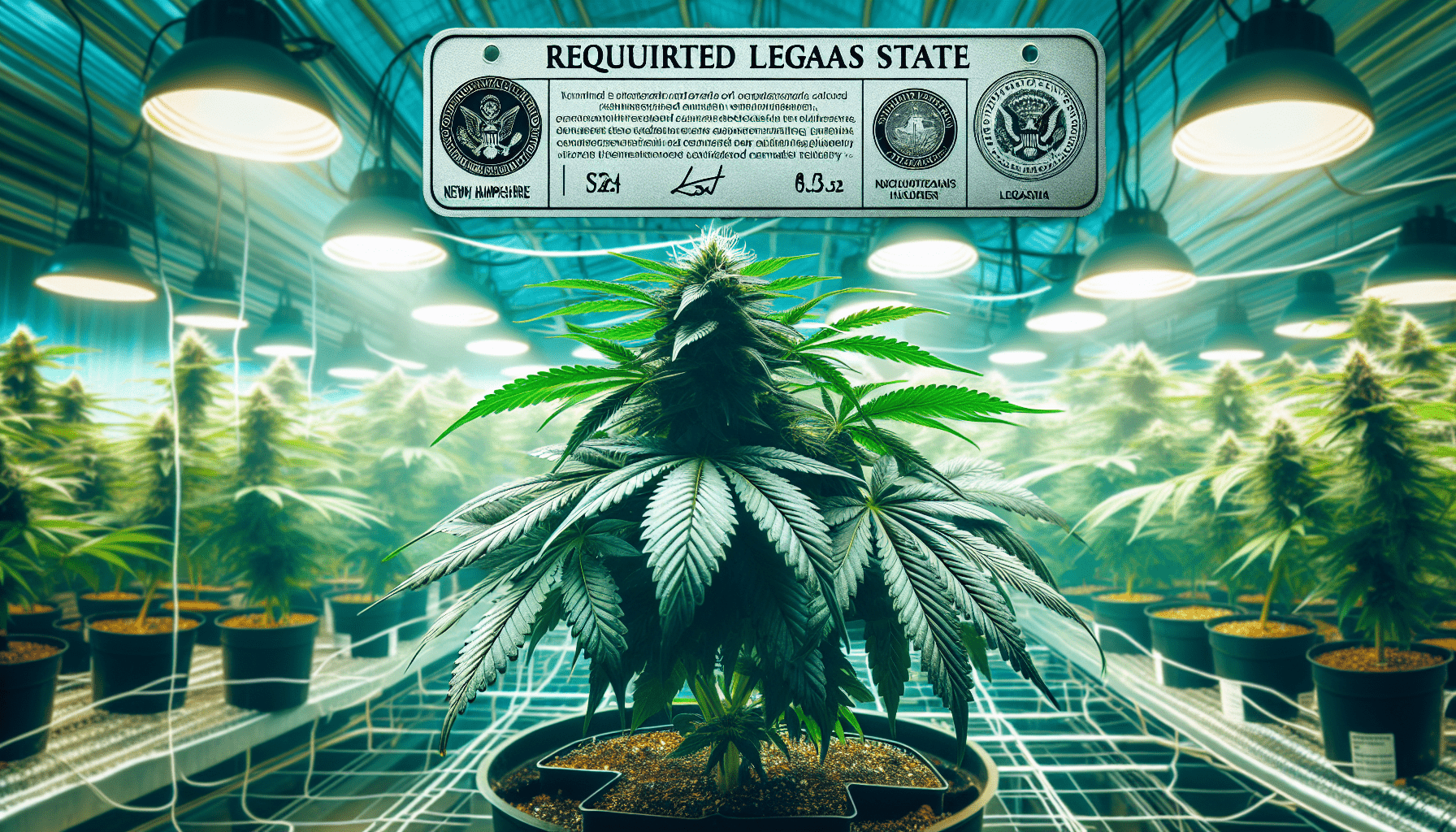Introduction
New Hampshire’s regulations on cannabis cultivation can be quite complex and often confusing. If you are considering entering the cannabis industry in the state, it is crucial to understand the various licenses that are required for cultivation. This article will break down the different licenses you need to cultivate cannabis in New Hampshire, providing you with a comprehensive guide to help you navigate the regulatory landscape.
Cultivation License
To legally cultivate cannabis in New Hampshire, you must obtain a cultivation license from the state’s Cannabis Control Commission. This license allows you to grow cannabis plants for commercial purposes, such as selling to dispensaries or processors. Without this license, you are not permitted to cultivate cannabis in the state.
Types of Cultivation Licenses
There are various types of cultivation licenses that you can apply for in New Hampshire, depending on the scale and nature of your cannabis cultivation operations. These include:
- Tier 1 Cultivation License: This license is suitable for small-scale cannabis cultivators, allowing them to grow a limited number of plants.
- Tier 2 Cultivation License: For larger cultivation operations, the Tier 2 license permits cultivators to grow a higher number of plants and operate on a larger scale.
- Nursery License: If you specialize in breeding and cloning cannabis plants, a nursery license may be more suitable for your operations.
Understanding the different types of cultivation licenses available can help you determine which one is the best fit for your specific needs and business goals.

Application Process
To obtain a cultivation license in New Hampshire, you must go through an application process set by the Cannabis Control Commission. The process typically involves submitting various documents, undergoing background checks, and meeting specific requirements outlined by the state.
Required Documents
When applying for a cultivation license, you will need to provide certain documents to the Cannabis Control Commission. These documents may include:
- Business Plan: A detailed plan outlining your cannabis cultivation operations, including your cultivation techniques, production capacity, and financial projections.
- Security Plan: A comprehensive security plan detailing how you will secure your cultivation facility to prevent theft or diversion of cannabis products.
- Floor Plan: A layout of your cultivation facility, showing the designated areas for cultivation, processing, and storage of cannabis plants.
- Proof of Financial Stability: Documentation demonstrating that your business has the financial means to operate a cannabis cultivation business successfully.
By preparing these documents ahead of time, you can streamline the application process and increase your chances of obtaining a cultivation license from the state.
Background Checks
As part of the application process, you will be required to undergo background checks to ensure that you meet the state’s eligibility criteria for a cultivation license. These background checks may include criminal history checks, financial background checks, and checks for any previous violations of cannabis laws in other states.
It is essential to disclose any relevant information accurately and transparently to the Cannabis Control Commission to avoid delays in the application process.

Compliance Requirements
Once you have obtained a cultivation license in New Hampshire, you must adhere to various compliance requirements set forth by the state. These requirements are designed to regulate the cultivation, processing, and distribution of cannabis products to ensure public safety and prevent illicit activities.
Security Measures
One of the critical compliance requirements for cannabis cultivators in New Hampshire is implementing robust security measures at their cultivation facilities. These measures may include:
- Surveillance Cameras: Installing surveillance cameras throughout the facility to monitor the cultivation, processing, and storage of cannabis plants.
- Access Control: Restricting access to designated areas within the cultivation facility to authorized personnel only.
- Alarm Systems: Implementing alarm systems that can alert authorities in case of unauthorized entry or suspicious activities at the facility.
By maintaining proper security measures, cultivators can prevent theft, diversion, and other criminal activities that may jeopardize their operations or endanger public safety.
Testing and Labeling
Another compliance requirement for cannabis cultivators in New Hampshire is testing and labeling their cannabis products before they are sold to consumers. These requirements ensure that cannabis products meet specific quality and safety standards, providing consumers with accurate information about the products they are purchasing.
Cultivators must send their cannabis products to state-licensed testing facilities to undergo testing for potency, contaminants, and purity. Once the products pass the testing requirements, they must be labeled correctly with information about potency, ingredients, and any potential allergens.
Record-Keeping
To maintain compliance with state regulations, cannabis cultivators in New Hampshire must keep detailed records of their cultivation operations. These records should include information such as:
- Inventory: Tracking the movement of cannabis plants from seed to sale, including cultivation, processing, and distribution.
- Sales: Documenting each sale of cannabis products to dispensaries or processors, including quantities, prices, and customer information.
- Testing Results: Recording the testing results of cannabis products, including potency levels, contaminants, and purity assessments.
By maintaining accurate and up-to-date records, cultivators can demonstrate compliance with state regulations and respond to any audits or inspections conducted by regulatory authorities.

Conclusion
Navigating the regulatory landscape of cannabis cultivation in New Hampshire can be challenging, but understanding the necessary licenses and compliance requirements is essential for operating a successful cultivation business. By obtaining the right cultivation license, following the application process, and meeting compliance requirements, you can establish a legal and compliant cannabis cultivation operation in the state.
Remember to stay informed about any updates or changes in the state’s regulations to ensure that your cultivation business remains compliant and successful in the evolving cannabis industry. Whether you are a small-scale cultivator or a large cultivation operation, following the regulations and guidelines set forth by the state is crucial for your long-term success in the cannabis market in New Hampshire.

